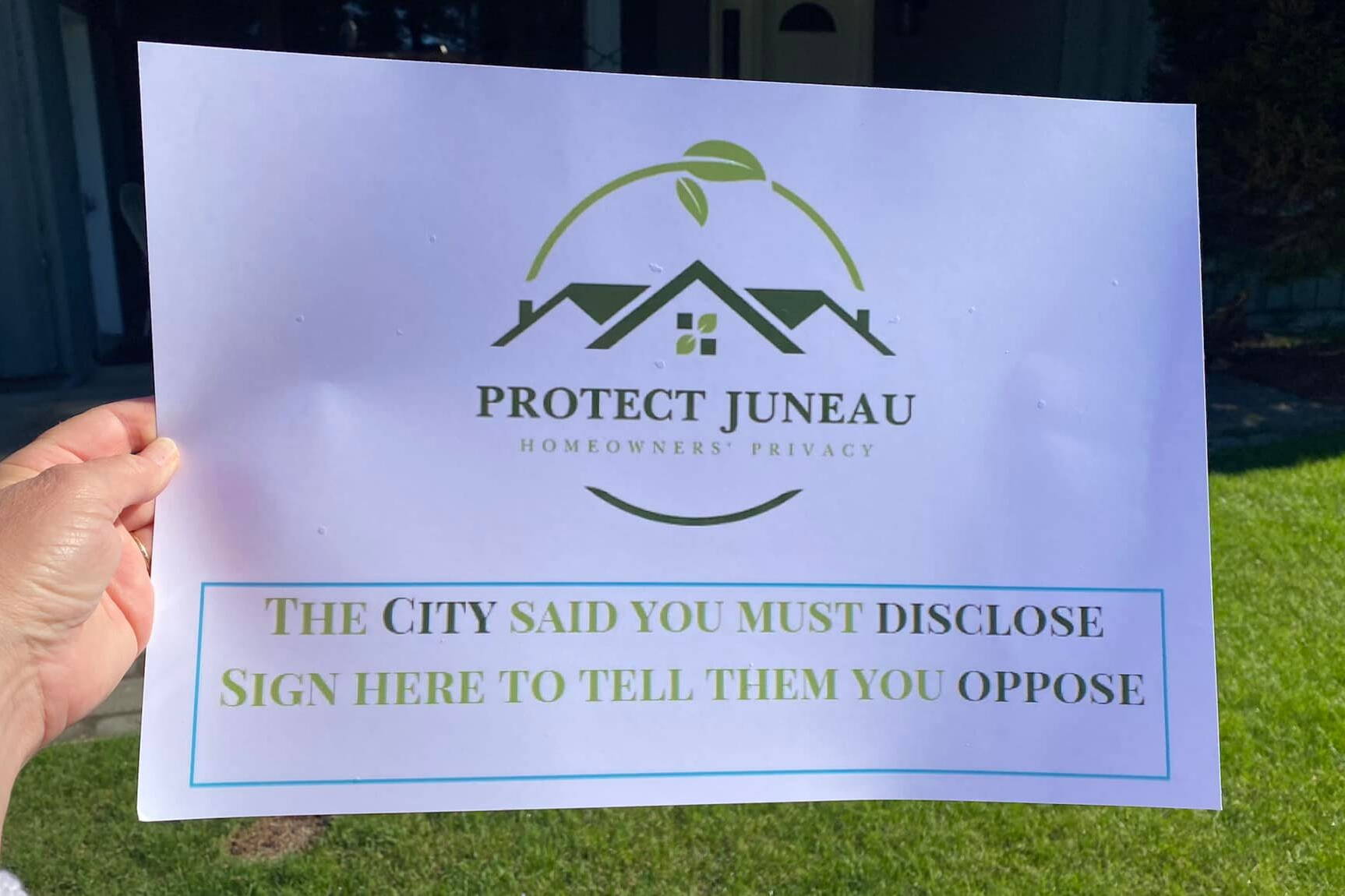A petition seeking to repeal an ordinance requiring Juneau property buyers to disclose the purchase price to the city appears to have enough signatures to qualify for the Oct. 3 municipal ballot, organizers said Monday.
The ordinance has been controversial since it was discussed and then enacted in 2020, with a group of real estate agents and others leading the repeal effort. The campaign was sparked by the City and Borough of Juneau Assembly’s decision to put teeth in the oft-ignored requirement by imposing $50-a-day fines for buyers who don’t comply starting June 27.
An initial tally shows 2,501 registered voters signed the petition by Friday’s deadline, well in excess of the 2,130 needed to qualify for the ballot, said Tonja Moser, president of the Southeast Alaska Board of Realtors. She said total signatures gathering during the 30-day period actually was close to the 3,000 organizers sought to ensure a sufficient safety margin, but a few hundred were not notarized or from people not eligible to vote.
[Petition seeks to nix real estate disclosure requirement]
“We expected that,” she said, adding she doesn’t expect the number of qualifying signatures to change notably during the 10 days the city has to review them.
If the signatures come up short of the required total the organizers, who call themselves Protect Juneau Homeowners’ Privacy, will have an additional 10 days to meet the mandatory minimum.
If the question does qualify for the ballot the the dividing lines for the campaign are suggested in a letter City Finance Director Jeff Rogers wrote to the Assembly’s Finance Committee in January of 2020 when it was considering the ordinance.
“Generally, government assessors and their professional associations endorse mandatory disclosure of the sales prices of real estate transactions,” Rogers wrote, adding such disclosure “increases the amount of information available to the assessor and the general public, and increased information certainly leads to more accurate — hence more equitable — property assessments.”
“Conversely, real estate industry professionals generally oppose mandatory disclosure,” because they argue sales prices are not necessarily a good indicator of taxable value and it’s an invasion of the buyer’s privacy, he noted.
Rogers, in recommending the Assembly approve the ordinance, stated privacy concerns should be considered, but “in weighing the balance between equitability and privacy, the vast majority of jurisdictions in the United States have opted for mandatory disclosure of sales prices in real estate transactions.”
Spearheading the campaign for the recall proponents is Ann Sparks, an associate with Platinum Keller Williams Realty Alaska Group, who said implementing the disclosure policy in Juneau because it’s common elsewhere is nonsensical due to the city’s lack of developable property and other unique considerations.
“We’re not like every other city in the Lower 48,” she said. “We’re not even like other cities in Alaska.”
Also the sharp increase in property values — and being subject to rapid changes — since the local ordinance was enacted further distorts the difference between assessed and actual sales prices, which puts a wide variety of people including low-income and renter at a disadvantage if disclosure results in consequences such as high taxes, Sparks said.
“When this ordinance came out I think there was a lot of misunderstanding,” she said.
The fall ballot is likely to feature some high-profile questions, including extending the city’s temporary 1% sales tax for yet another five years and a possible bond measure for a new City Hall, which may overshadow the property disclosure repeal. But Sparks said she hopes high-profile issues result in a high level of interest in ballot questions and consequently a high turnout.
• Contact reporter Mark Sabbatini at mark.sabbatini@juneauempire.com.

